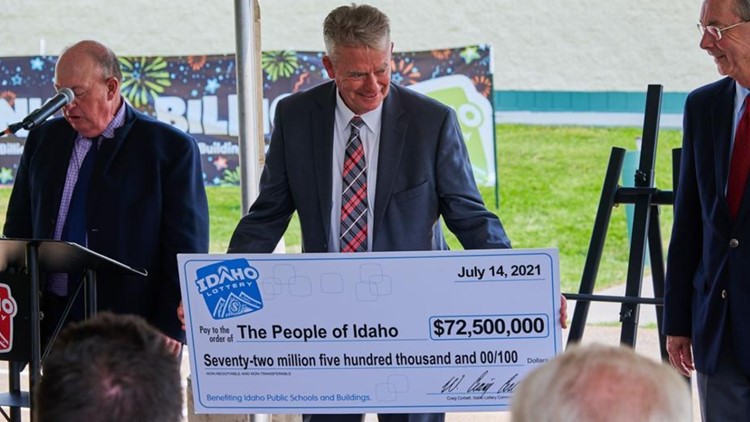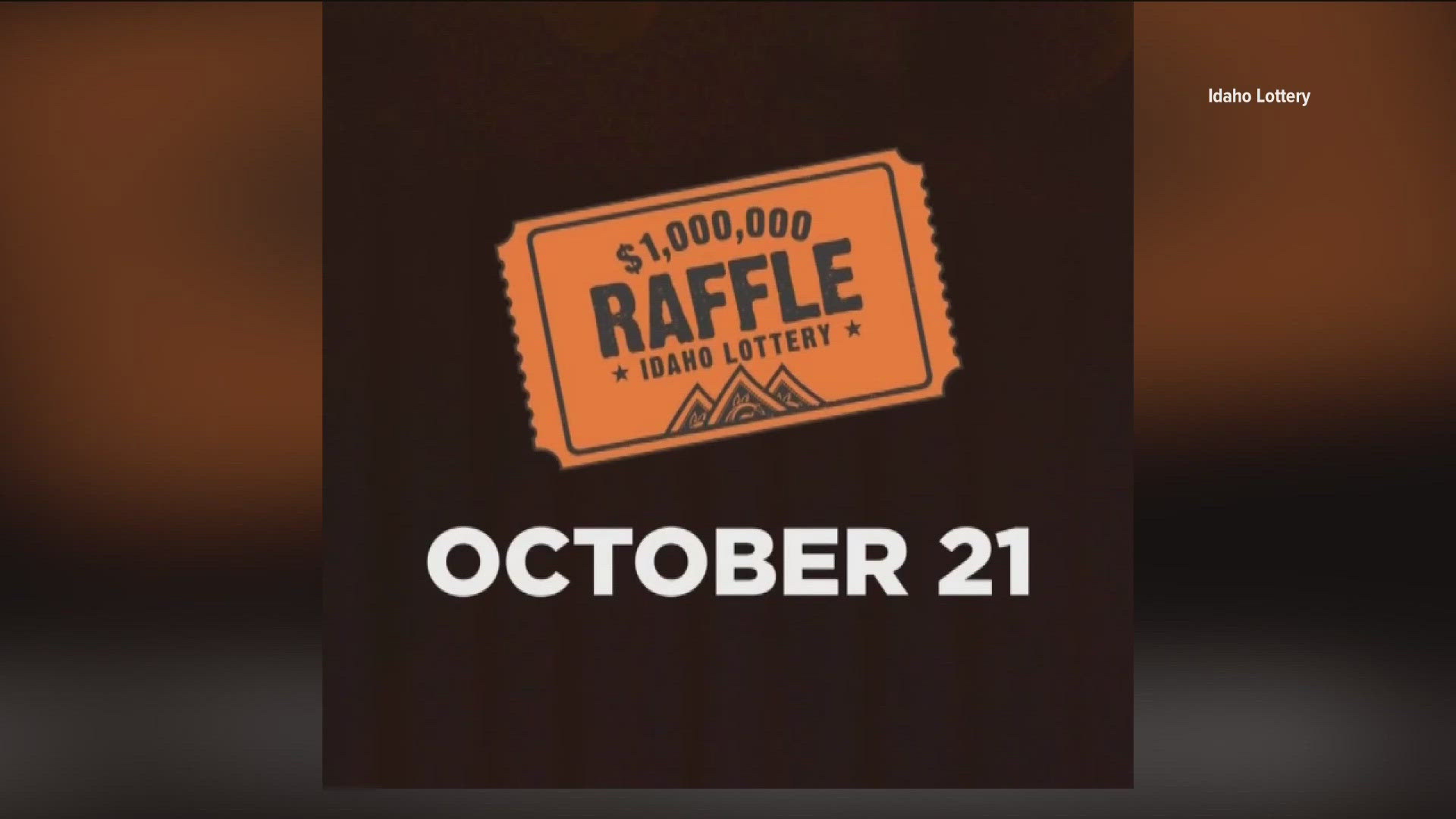NAMPA, Idaho — Editor's Note: This article was originally published by the Idaho Press.
The Idaho Lottery announced a record annual dividend to the state of $72.5 million Wednesday, which shattered the previous record of $60 million in 2019. Of the $72.5 million in profits turned over to the state, $45.3 million went to the state’s K-12 public schools.
Gov. Brad Little, state schools Superintendent Sherri Ybarra, and lottery officials joined a crowd at Iowa Elementary School in Nampa on Wednesday for the presentation of oversized checks to mark the record payout. Last summer, the Nampa School District and Iowa Elementary used their share of lottery dividend funds to replace aging HVAC systems, including major improvements to air conditioning at the school and upgrades for the school gym and cafeteria. Five employees of an employee-owned Boise firm, ACCO Engineered Systems, spent two and a half months on the project.
“With this year’s dividend, the Idaho Lottery has now returned more than $1 billion to the people of Idaho,” Little said in a statement Wednesday. “Every dollar created by the lottery is a dollar that supports public education for school maintenance projects like here at Iowa Elementary.”
The public school share of the dividend is divided with $27.2 million to the School Building Fund Account for maintenance and operations projects; and $18.1 million to the state Bond Levy Equalization Fund to subsidize interest on public school construction bonds. The remaining $27.2 million went to the state’s Permanent Building Fund for public building construction, maintenance and repair; schools and the building fund have split the profits from the lottery since its inception in 1989 after Idaho voters authorized the state lottery.
“The Lottery has benefits that reach deep into Idaho communities, well beyond players who win prizes and retailers who sell our products,” said Jeff Anderson, Idaho Lottery director. “Iowa Elementary is just one project among thousands completed each year by local contractors and businesses in all of Idaho’s school districts with our dividend dollars. Today, we recognize the benefits of an exceptional year that was beset with extraordinary circumstances and challenges by returning more dividends to the citizens of Idaho than in any previous year.”
This year, an Idaho House committee killed proposed legislation to allow the state to continue to be part of the multistate Powerball game after it expands to Australia and the United Kingdom, as it plans to do in the future; current state law allows the lottery only to be part of U.S. lotteries. Some House State Affairs Committee members said they feared that Australia might use lottery profits for “anti-gun” purposes. Others said they feared Idaho residents would have reduced odds of winning, the AP reported, but the odds remain the same no matter how many players take part, because they’re based not on the number of players, but the chances of particular numbers being selected. If multiple winners choose the winning numbers, jackpots are split.
Lottery officials initially feared the demise of the legislation would spell the end of Powerball in Idaho by August of this year, but negotiations between the Multi-State Lottery Association, which runs Powerball, and Australia and the U.K. broke down in late April, and the expansion to those nations was put off at least until next year.
Idaho was among the first states to join the Powerball game in the 1990s. The multistate game now includes 45 states, two U.S. territories and Washington, D.C.
Over its history, the Idaho Lottery’s biggest winner was Brad Duke of Star, who won a $220 million Powerball Power Play jackpot in 2005.
Betsy Z. Russell is the Boise bureau chief and state capitol reporter for the Idaho Press and Adams Publishing Group. Follow her on Twitter at @BetsyZRussell.



